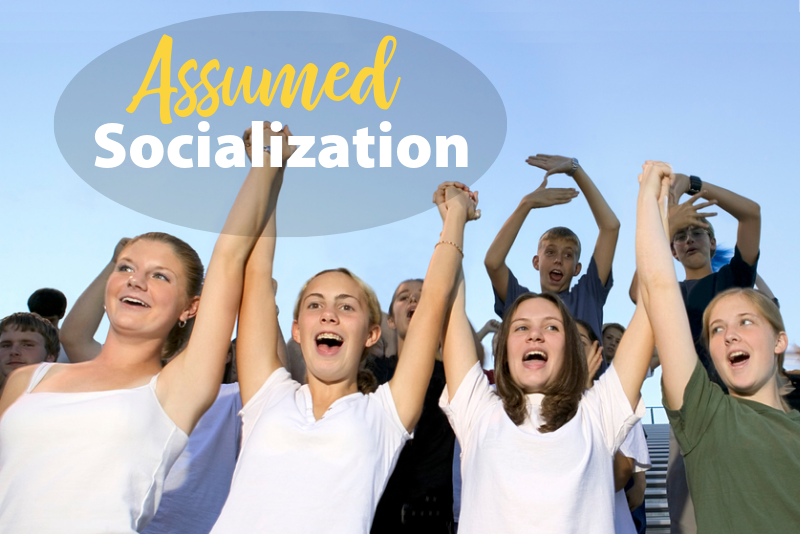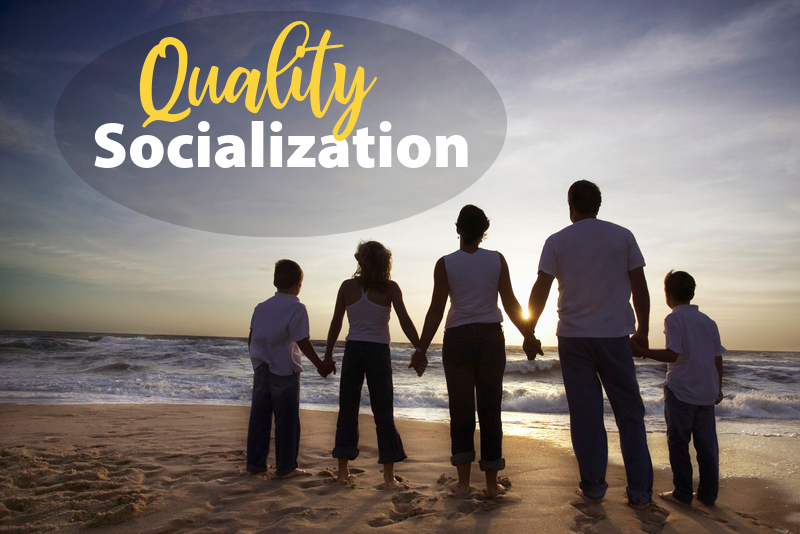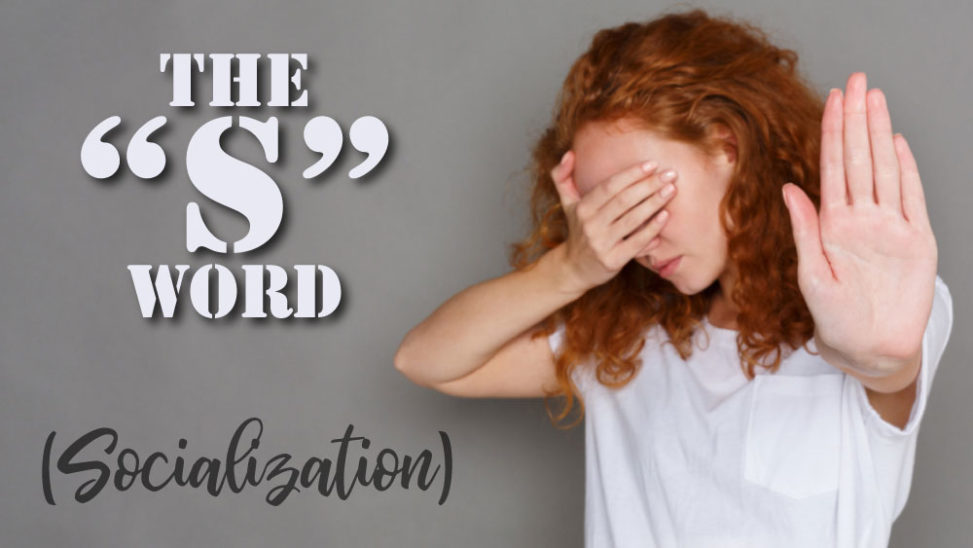Ask any homeschooling parent what the "S" word is that's most often tossed out as a challenge to home education.
The overwhelming response will be: "Socialization."
Are you tempted, at times,
to reply to these oft-repeated "S" word challenges
with a huge sigh
and a "Please, not that again!"?
Take heart!
You can smile cheerfully
and answer with confidence.
"What about socialization?"
That is actually a very good question.
Yes, some would say that the “socialization” to which these inquirers are referring is instead “socializing” – and that it often represents “making friends,” “playing sports,” “going to prom,” and other customary “social” interactions connected in these questioners’ minds to their own traditional school experiences.

In our current culture, a substitute for real socialization is simply placing young people in the same physical location with others of their same ages for hours at a time.
In these settings, the assumed socialization often results in students who interact primarily with age-mates who share the same cultural tastes and references. Social cliques and bullying can also be a consequence.

Real socialization is so much more than activities that young people “do” – rubbing elbows with others in groups.
It’s really something they “acquire” – assimilating values and attitudes that are acceptable and honored by our society as a whole.
Real socialization is the capability to interact successfully and appropriately with people of all ages.
It’s not necessarily related to having lots of friends or hanging out with crowds of people in institutionalized settings.
Introverted, reserved people can be highly socialized, while extroverted, gregarious people can be poorly socialized.

If you’ve studied sociology – or, more importantly, consulted God’s Word – you’ll find that the primary agent of socialization is the family.
Loving parents
are the absolute best socializing agents,
communicating values, modeling attitudes,
demonstrating interpersonal skills,
and more.
Just imagine the positive outcome if parents were recognized, encouraged, equipped, and valued as the key socializing agents – no matter what educational option is used – rather than supplanted, marginalized, replaced, and depreciated.
Homeschooled children are naturally in the family environment for extensive periods. They’re continually exposed to “real-life” experiences.
Are there examples of homeschooled children who have received inadequate socialization?
The answer, as with children placed in any educational setting, is, yes, there can possibly be occasional failures.
What does the research on this subject indicate?
“Homeschooled students are not at risk of socialization problems in the U.S.”
~ “The Social and Emotional Health of Homeschooled Students in the United States”
“There appears to be, therefore, a convergence of evidence from three different perspectives – parental report, objective observers, and self-report – that homeschooled children's social skills are exceptional.”
~ “Homeschooled Children’s Social Skills”
So the next time you hear
that constant question with the “S” word in it,
be prepared to smile and reply confidently,
“Our children are in the very best setting
for quality socialization!
Thanks for asking.”

